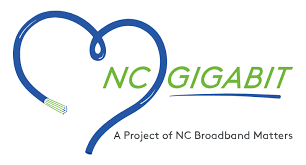Mapping Data and Dollars - Community Broadband Bits Podcast, North Carolina Bonus Episode Three

This week is episode three of the new podcast project we're working on with the nonprofit NC Broadband Matters, whose focus is on bringing ubiquitous broadband coverage to local communities for residents and businesses in North Carolina.
The ten episode podcast series, titled "Why NC Broadband Matters," explores broadband and related issues in North Carolina.
 This week, Christopher and his guests explore mapping in our episode titled, "Broadband Mapping Means Money: Understanding How Data Drives Decisions.”
This week, Christopher and his guests explore mapping in our episode titled, "Broadband Mapping Means Money: Understanding How Data Drives Decisions.”
He talks first with Brian Rathbone, Co-Founder of Broadband Catalysts, a consulting firm that works with communities, non-profits, corporations, and governments to expand broadband Internet access. Brian and Christopher dig into federal mapping data and talk about some of the challenges in obtaining accurate data.
Jeff Sural works as Director of the Broadband Infrastructure Office for the North Carolina Department of Information Technology. He and Christopher take the mapping conversation to the state level. Jeff describes the work of the Office and explains why it's important that the state have the most accurate information possible. He explains state methods that involve citizen input about Internet access to help them get a more accurate picture of connectivity for residents and businesses in North Carolina.
We want your feedback and suggestions for the show-please e-mail us or leave a comment below.
This show is 54 minutes long and can be played on this page or via Apple Podcasts or the tool of your choice using this feed, at the Community Broadband Bits page, or at the NC Broadband Matters page. We encourage you to check out other "Why NC Broadband Matters" content at the podcast feed so you don't miss future bonus content that may not appear in the Community Broadband Bits Podcast feed.
Transcript below.
We want your feedback and suggestions for the show-please e-mail us or leave a comment below.
Listen to other episodes here or view all episodes in our index. See other podcasts from the Institute for Local Self-Reliance here.
Thanks to Shane Ivers for the Music: What's The Angle? by Shane Ivers - https://www.silvermansound.com a Creative Commons Attribution (4.0) license.
Image of the American Community Survey Map courtesy of the NC One Map uses U.S. Census Bureau Data shows the percentage of households in North Carolina with no Internet connection.

